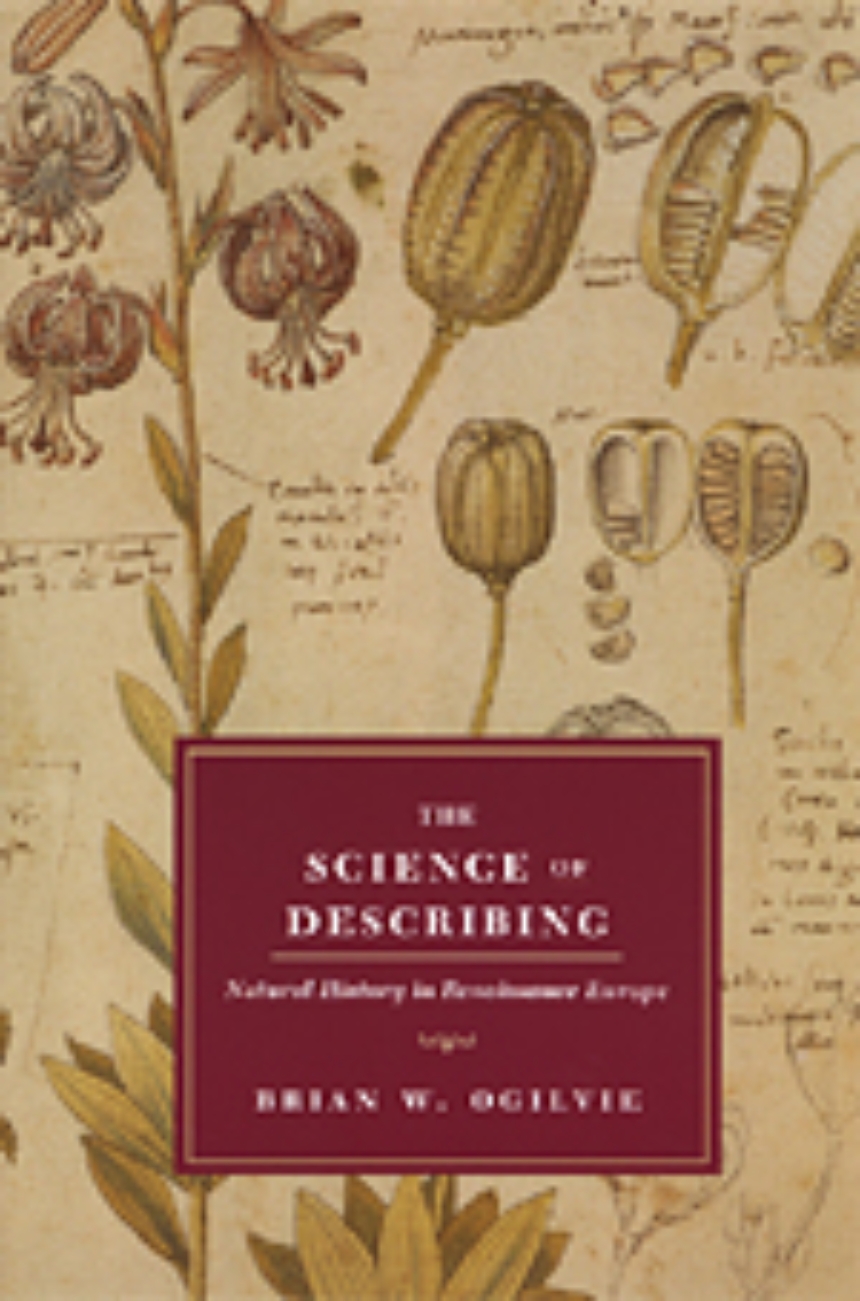The Science of Describing
Natural History in Renaissance Europe
Out of the diverse traditions of medical humanism, classical philology, and natural philosophy, Renaissance naturalists created a new science devoted to discovering and describing plants and animals. Drawing on published natural histories, manuscript correspondence, garden plans, travelogues, watercolors, and drawings, The Science of Describing reconstructs the evolution of this discipline of description through four generations of naturalists.
In the late fifteenth and early sixteenth centuries, naturalists focused on understanding ancient and medieval descriptions of the natural world, but by the mid-sixteenth century naturalists turned toward distinguishing and cataloguing new plant and animal species. To do so, they developed new techniques of observing and recording, created botanical gardens and herbaria, and exchanged correspondence and specimens within an international community. By the early seventeenth century, naturalists began the daunting task of sorting through the wealth of information they had accumulated, putting a new emphasis on taxonomy and classification.
Illustrated with woodcuts, engravings, and photographs, The Science of Describing is the first broad interpretation of Renaissance natural history in more than a generation and will appeal widely to an interdisciplinary audience.
In the late fifteenth and early sixteenth centuries, naturalists focused on understanding ancient and medieval descriptions of the natural world, but by the mid-sixteenth century naturalists turned toward distinguishing and cataloguing new plant and animal species. To do so, they developed new techniques of observing and recording, created botanical gardens and herbaria, and exchanged correspondence and specimens within an international community. By the early seventeenth century, naturalists began the daunting task of sorting through the wealth of information they had accumulated, putting a new emphasis on taxonomy and classification.
Illustrated with woodcuts, engravings, and photographs, The Science of Describing is the first broad interpretation of Renaissance natural history in more than a generation and will appeal widely to an interdisciplinary audience.
402 pages | 14 halftones, 21 line drawings | 6 x 9 | © 2006
Art: European Art
Biological Sciences: Natural History
History: European History
Reviews
Table of Contents
List of Figures
Preface and Acknowledgments
Conventions
1. Introduction
2. The World of Renaissance Natural History
3. The Humanist Invention of Natural History
Preface and Acknowledgments
Conventions
1. Introduction
2. The World of Renaissance Natural History
3. The Humanist Invention of Natural History
4. A Science of Describing
5. Common Sense, Classification, and the Catalogue of Nature
6. Conclusion: What Was "Renaissance Natural History"?
Notes
Bibliography
Index
5. Common Sense, Classification, and the Catalogue of Nature
6. Conclusion: What Was "Renaissance Natural History"?
Notes
Bibliography
Index
Awards
Association of American Publishers: PROSE Book Award
Honorable Mention
History of Science Society: Pfizer Award
Short Listed/Finalist
